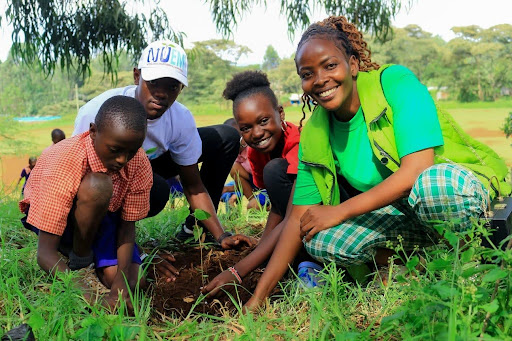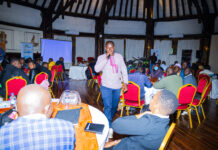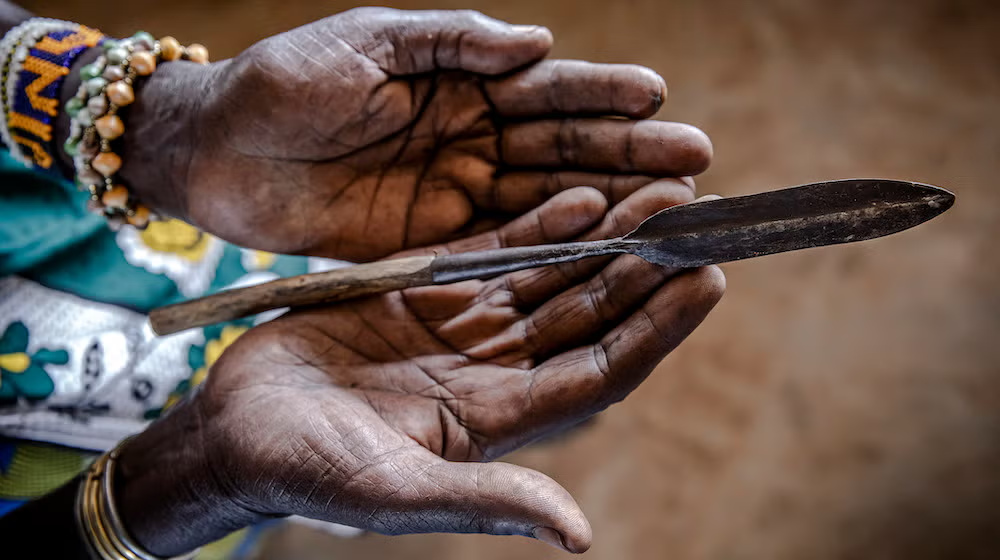By Arasha Soila
Kajiado County, Kenya: As Africa marked Environment Day, Community-Based Organizations (CBOs) in Kajiado North County stepped into the spotlight to honor the enduring legacy of the late environmentalist Wangari Maathai. Inspired by Maathai’s pioneering efforts, the Greening Kwetu Foundation, in collaboration with Ngong Umoja Environmental Management (NUEM), Mpenda Mazingira Foundation, and Development Organization for Arid and Semi-arid Lands (DOASAL), organized a series of events to highlight environmental concerns.
In recent years, Kajiado North has witnessed firsthand the profound impacts of climate change, from prolonged droughts to flash floods disrupting agricultural activities and threatening livelihoods. Recognizing the urgency of the situation, the CBOs rallied together to raise awareness and build resilience at the grassroots level. At the heart of this movement lies the belief that education is the key to empowering individuals and communities to tackle climate change head-on.
Through tree planting campaigns and climate education initiatives in local schools throughout the county, these grassroots organizations showcased their unwavering dedication to environmental stewardship and the promotion of sustainable development. These grassroots organizations aimed to instill environmental consciousness in the younger generation while fostering practical actions for a sustainable future. By integrating tree planting with climate education in schools, these initiatives not only contribute to ecosystem restoration but also empower the next generation to become catalysts for change in their communities.
Speaking during the tree planting initiative, Phyllis Mwambu, founder of Greening Kwetu Foundation underscored the importance of planting trees in primary and secondary schools to instill environmental stewardship among students. “We educate the students so that they can become guardians of these trees and be able to take care of them. Our aim is not only to plant the trees but also to nurture and grow them,” she articulated.
However, financial constraints have posed significant challenges to project implementation, slowing their progress and limiting their societal impact. “Securing funding has consistently hindered our projects. With continuous support, our initiatives could expand and become more impactful,” she stressed. Mwambu outlined their goal of planting 50,000 trees this year in Kajiado North schools and reaching out to 5000 people through climate education. She urged schools, climate activists, relevant organizations, and the community to unite in combating climate change.

Community-based organizations planting trees at the local schools
This year’s Africa Environment Day comes at a critical time as the world grapples with the impacts of climate change and environmental degradation. African countries are particularly vulnerable to these challenges, with many facing threats such as droughts, floods, and food insecurity. According to the IPCC, Africa will see increased droughts, which will continue to affect livelihoods, agriculture, water systems, and ecosystems. The report underscores the urgency for rapid, deep, and sustained action on climate adaptation, noting that action is more urgent in Africa.
While Africa accounts for only about 2 to 3 percent of global greenhouse gas emissions, it suffers disproportionately from it. The Center for Global Development, says that African countries will suffer significant economic loss after 2050 if global warming is not limited to below 2°C. Further, the report states that if climate change continues on its current trend, crop production in Africa will decline by 2.9% in 2030 and by 18% by 2050.
The unfolding phenomena of climate change, biodiversity depletion, desertification, land degradation, and unsustainable use of finite natural resources remain a serious risk for Africa as they pose real impediments to achieving the sustainable development goals envisioned in Africa’s Agenda 2063. Aspiration 1 of Africa’s Agenda 2063, has amongst its goals “the establishment of environmentally sustainable climate and resilient economies and communities.” This is to be achieved by putting in place measures to sustainably manage the continent’s rich biodiversity, forests, land, and waters and using mainly adaptive measures to address climate change risks.
Africa subscribes to basic principles and ideals of the green economy as a concept that provides the continent and other developing regions of the world, with alternative approaches to development that seek to integrate economic development with environment, human well-being, and socially inclusive growth, thereby mitigating the risks which arise from environmental degradation.
In a statement to mark the day, Kendra Gatimu, founder of the Development Organization for Arid and Semi-arid Lands urged fellow climate activists to join their cause in educating and mobilizing communities. “Climate change education is paramount in fostering awareness and action at the grassroots level. Together, we can empower individuals with the knowledge to understand the urgency of climate action and the tools to enact meaningful change. By collaborating and amplifying our efforts, we can reach more people, inspire collective action, and drive sustainable solutions,” she emphasized.
Additionally, Abel Ondigi, founder of Mpenda Mazingira, a youth-led organization, stressed the critical importance of climate change education, particularly in schools within Kajiado. The region faces escalating environmental challenges, from water scarcity to desertification, necessitating urgent action. “By spearheading climate change education initiatives in local schools, we can cultivate a generation equipped with the knowledge and skills to address these pressing issues.” He continued by saying that, involving the youth in such endeavors not only keeps them engaged and productive but also fosters a sense of ownership and responsibility towards their surroundings. “By channeling their energy and enthusiasm into meaningful projects, we not only address local environmental issues but also cultivate leadership skills and a sense of purpose among the youth,” he emphasized.
“Waste management remains a menace in Kajiado North especially because of the rapid urbanization which is significantly contributing to climate change. By educating communities about the importance of reducing, reusing, and recycling waste, we can mitigate the impacts of climate change while also preserving natural resources,” remarked Ian Mwangi, Founder of Ngong Umoja Environmental Management. He reaffirmed by stating that through collaborative efforts and grassroots initiatives, they aim to inspire lasting behavioral changes and cultivate a culture of environmental responsibility for a cleaner and greener Kajiado North for both current and future generations.
As Africa grapples with these pressing environmental challenges, the role of community-based organizations has never been more critical. These grassroots initiatives demonstrate the power of collective action and the potential for meaningful change at the local level.













